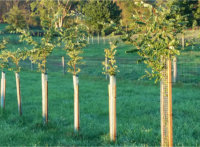
© 2025 Misty Oaks Farm • All Rights Reserved. No portion of this website may be
reproduced without the express written consent of Misty Oaks Farm.

Management Practices for Our Katahdin Sheep
Interplanting
Wild cherry and dying ash trees are being replaced with a mixture of fast and slow growing trees for diversity and for "instant" and long-term growth.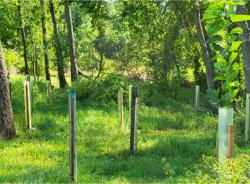
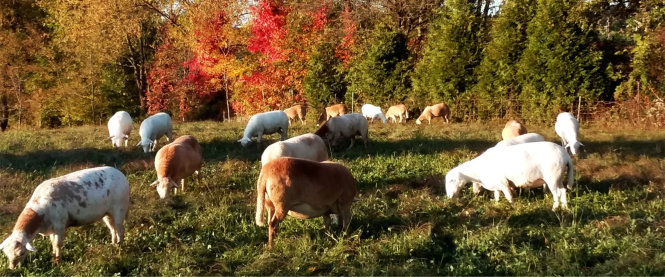
MOF

Canine Partners
Our Border Collie, Pippin; English Shepherd, Trey; and Russel Terrier, Quinn, are all valued members of the team.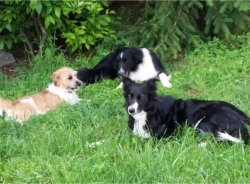
Ewes Winter on Pasture
Ewes are fed hay and stockpiled forage with access to portable, three-sided shelters in winter, then moved to the barn for lambing.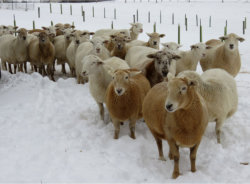
“Instant” Shade
By year three (2023), locust trees already provide shade while slower growing oaks, hickories and other mast producing trees become established for long-term growth.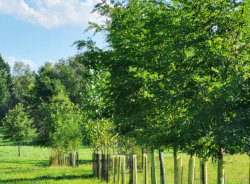
Performance on Grass
Although we prefer twins, ewes like this 2 yr old who can raise consistent triplets on grass are valued.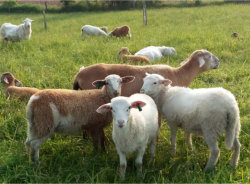
Auger Used for Planting
Jeff used an auger to plant bare root seedlings for our new Silvopasture Project with Quinn's supervision.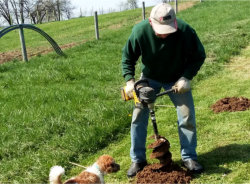


New Silvopasture Project
Early Access to Pasture
Lambs are usually born in the barn, but have access to pasture from the beginning.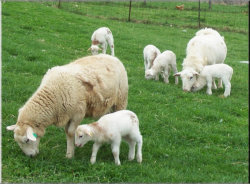
Early Maturity
We value early maturity, preferring ewes that lamb at one year. We find good mothers can easily handle twins as yearlings with adequate nutrition.

Without Records You Can’t Tell
Rotational Grazing
We use rotational grazing with occasional pasture improvement for optimal forage utilization and animal performance.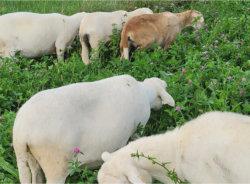
First Planting – Spring 2021
Tree shelters are used to protect the young trees from being eaten prematurely by the sheep and provide a microclimate for the seedlings for faster growth.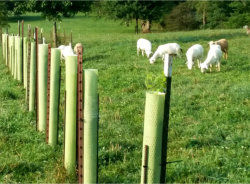
Trees in Year 2
Fast growing locust, poplar and aspen trees, planted in rows for easier pasture maintenance, will provide shade, shelter and fodder.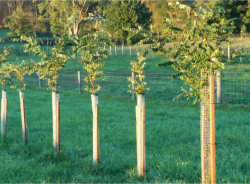

Katahdin ewes are pictured with their hardy lambs at Misty Oaks Farm in Wooster, Ohio. Our Katahdin sheep farm management procedures are
focused on parasite resistance and pasture maintenance.
Wildlife/Pollinator Plantings
Groups of shrubs (dogwood, viburnum and more), protected to allow sheep to graze the sides but not the centers of shrubs, will provide pollen, berries and cover for wildlife.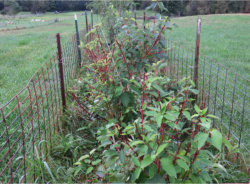
“




© 2025 Misty Oaks Farm • All Rights Reserved. No
portion of this website may be reproduced without
the express written consent of Misty Oaks Farm.
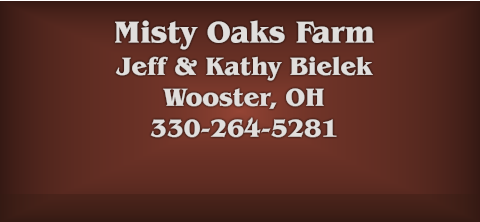
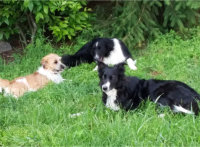
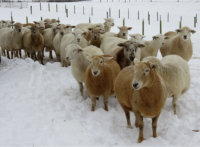
Interplanting
Wild cherry and dying ash trees are being replaced with a mixture of fast and slow growing trees for diversity and for "instant" and long- term growth.Canine Partners
Our Border Collie, Pippin; English Shepherd, Trey; and Russel Terrier, Quinn, are all valued members of the team.Ewes Winter on
Pasture
Ewes are fed hay and stockpiled forage with access to portable, three-sided shelters in winter, then moved to the barn for lambing.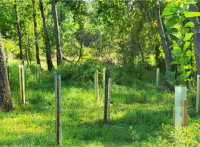
“Instant” Shade
By year three (2023), locust trees already provide shade while slower growing oaks, hickories and other mast producing trees become established for long-term growth.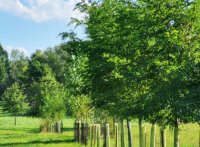
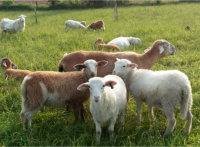
Auger Used for
Planting
Jeff used an auger to plant bare root seedlings for our new Silvopasture Project with Quinn's supervision.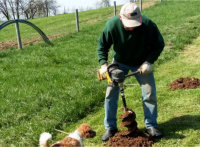

New Silvopasture Project
Early Access to
Pasture
Lambs are usually born in the barn, but have access to pasture from the beginning.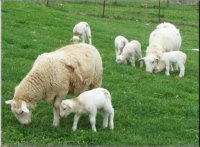



Without Records You Can’t Tell
Rotational
Grazing
We use rotational grazing with occasional pasture improvement for optimal forage utilization and animal performance.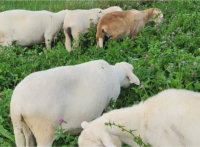
Wildlife/
Pollinator
Plantings
Groups of shrubs (dogwood, viburnum and more), protected to allow sheep to graze the sides but not the centers of shrubs, will provide pollen, berries and cover for wildlife.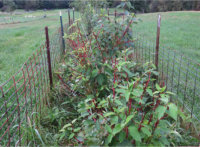
Early Maturity
We value early maturity, preferring ewes that lamb at one year. We find good mothers can easily handle twins as yearlings with adequate nutrition.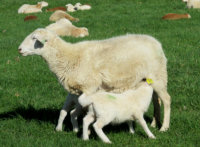
MOF
Performance on
Grass
Although we prefer twins, ewes like this 2 yr old who can raise consistent triplets on grass are valued.First Planting –
Spring 2021
Tree shelters are used to protect the young trees from being eaten prematurely by the sheep and provide a microclimate for the seedlings for faster growth.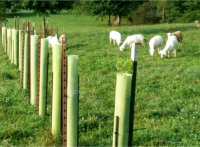
Katahdin ewes are pictured with their hardy lambs
at Misty Oaks Farm in Wooster, Ohio. Our Katahdin
sheep farm management procedures are focused
on parasite resistance and pasture maintenance.

Management Practices for Our
Katahdin Sheep
Trees in Year 2
Fast growing locust, poplar and aspen trees, planted in rows for easier pasture maintenance, will provide shade, shelter and fodder.